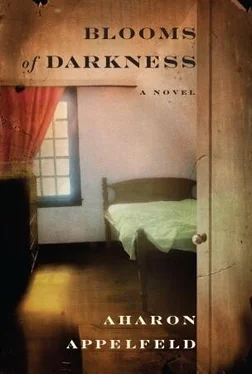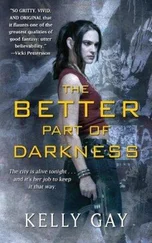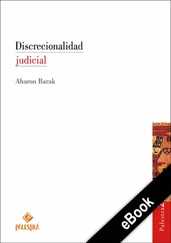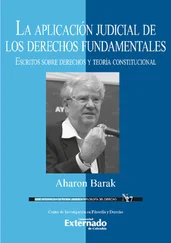“What must I do?”
“Don’t fear. Fear debases us. A debased person isn’t worthy of living. If you’re going to live, then live in freedom. That simple thing was what I didn’t know. All my life I lived a debased life.”
“I’m not afraid.”
“That’s just what I wanted to hear from you. It’s better to die than to live a debased life.”
Later, for no discernible reason, Mariana bursts into tears. Hugo kneels and wipes her eyes, but her weeping does not subside. “Mariana’s going to die, and no memory of her will be left. If I stayed alive, I could reform, but now I can’t. In hell they’ll roast me. Rightly, they’ll roast me. You, my dear, take care of yourself. When the informers come to take me, don’t go after me. They’ll take me straight to the gallows, or who knows what.”
“How do you know? There are no people here, there are no informers. There’s a splendid landscape and great tranquility.”
“With my own eyes I saw them.”
“What did you see?”
“I saw three soldiers handcuff me and march me off.”
“That was a bad dream. You mustn’t believe in bad dreams.”
“The dream was the truth,” she says in a whisper.
But when the sun descends to the horizon, and the lower part of the sky turns purplish-red, Mariana calms down. She takes a few swallows of brandy, and the dark visions fade away.
Suddenly she says to him, “Why don’t you read me some poems from the Bible?”
Hugo takes the Bible out of his knapsack and reads her the first psalm.
“It’s very beautiful, even if I don’t understand it. Do you?”
“I think so.”
“That phrase pleases me a lot, ‘like a tree planted by the rivers of water.’ Do you like the Bible?”
“Mama liked to read it to me, but since then I’ve barely opened it.”
“I forgot. You’re not religious. But since you’ve been with Mariana, you’ve changed a little. Mariana loves God very much. Too bad I didn’t walk in His ways. I always did the opposite. You have to promise me that you’ll read a chapter or two every day. That will strengthen you and give you power and courage to overcome evildoers. Evildoers swarm everywhere. Do you promise me?”
“I promise.”
“I knew you wouldn’t refuse me.”
They find shelter with an elderly couple. The old people accept German money and serve them hot vegetable soup. When Mariana asks whether the Germans have already retreated, the old man answers with assurance, “The German army is the best in the world. An army like that can’t be defeated.” The old man’s words fill her with hope, and she suddenly feels that she has been given a reprieve.
Their room is wide, and there is a large bed in it. There’s even a sink in the corner. After many days without a house, without washing, and without a toilet, the place seems like a splendid inn.
“We’re in good shape here, right?” Mariana says.
“Very much so.”
But Hugo’s sleep isn’t quiet that night. He sees his mother among a mass of refugees, and her face is dark and thin. She goes from person to person and asks whether they have seen Hugo. A woman refugee asks distractedly, “Where was he?” His mother is embarrassed for a moment, but she recovers and replies, “With a Christian woman.”
The refugees are consumed by their hunger and don’t take the trouble to answer her. They look to Hugo like the people from the ghetto who were waiting to be deported. In great despair he bites the handcuffs that shackle him. The massive effort does indeed free his hands, but instead of going down to the refugees and to his mother, he falls into a deep pit.
“What’s the matter?” Mariana wakes him up.
“Nothing, a dream.”
“Don’t pay attention to dreams,” she says, and draws him to her breast.
The next day the elderly couple offers them cups of tea. They accompany them to the gate and wish them a successful journey. Moved by the gesture, Mariana hugs and kisses the woman, and they immediately set out.
The following days are quiet and pass without surprises. They go from hill to hill, light campfires, and buy potatoes and cheese from the peasants. Hugo fishes successfully. Every day he catches three or four fish in his shirt.
Mariana’s fears are not assuaged, but they have lessened and are no longer outwardly expressed. From time to time she says, “You, my dear, must watch out for yourself and not try to defend me. Everyone has their own fate. That’s life.” Hearing her words, Hugo freezes where he is and doesn’t respond. But sometimes the words form in his mouth, and he says, “We’ll always be together, that’s God’s will.” His words bring a wry smile to her face.
Sometimes he reads psalms to her. Mariana encourages him and says, “Read, honey, you have a marvelous voice. I don’t understand the poems, but they exalt my soul. Do you understand them?”
“Not everything is understandable to me, either.”
“If we find a priest, he’ll explain them to us. Sometimes they leave the church and stroll along the river.”
While they are on the road, Hugo adopts Mariana’s way of speaking. When something succeeds for him, or when Mariana overcomes her depression, he says, “Thank God.” Mariana feels that she has transferred something of her inner self to Hugo. “Take the inside of Mariana and throw away the shell,” she says to him. “What’s inside her is faith in God on high, and her shell is depression. Depression is what always tries to drag her down to hell. If it weren’t for that illness, her life would have been different. Beware of depression as of the plague.”
But there are also days of laughter and drunken pleasures. “Isn’t it true that Mariana is still young and beautiful?” she would say.
“Very true.”
“If we get to a safe place, I’ll take care of myself, and all my beauty will be yours.”
“Thank you,” says Hugo, because he can find no other words.
“We’re like a pair of birds. Did you ever see a bird thank another bird? They hop from branch to branch, pleased with each other, and when evening comes, they fall asleep from having chattered so much.”
“Too bad the water in the stream is so cold,” she says at one point. “We could go into the stream and swim like two fish. When I was a little girl, I used to swim in the river. Since then I haven’t. I have a strong desire to swim. It seems to me that swimming would ease my depression. When a person swims and comes out of the water, he immediately walks erect. His eyes see splendid colors. Am I wrong?” Hugo loves that sudden wonderment. At such times he feels she is connected to mysterious forces within her. Her expression changes, and she is under influences that are not her own.
“It’s wrong that people kill animals and eat them,” she says after a while. “That’s a disreputable trait. Animals are so much like us that the killing of them cries out to heaven. Papa, of blessed memory, would slaughter a pig before every Easter. The memory of it gives me chills to this day. When I was young I swore in my heart that I wouldn’t eat meat. Of course I didn’t keep that oath.”
“Our family is vegetarian.”
“I didn’t know.”
“Just fruit and vegetables and dairy products.”
“I always said the Jews are more sensitive. But what good did their sensitivity do them? They were persecuted even more cruelly. Don’t ever forget that the members of your tribe were cruelly killed in the streets just because they were Jews.”
“I won’t forget.”
“The Germans drove them into the ghetto and sent them who knows where, just because they were Jews. God can’t bear injustice like that. He will bring a flood upon their persecutors. Don’t forget, you mustn’t pass over injustice in silence.”
Читать дальше












